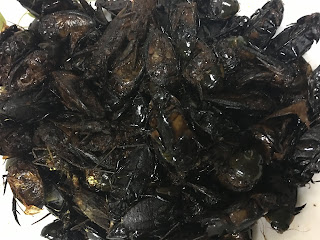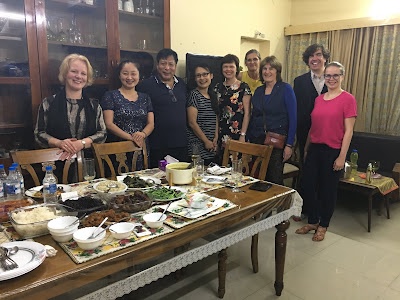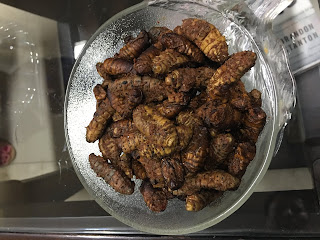One of our deputy directors, Baukje de Roos, recently traveled to Hyderabad, India, to attend the 100-year centenary of the National Institute of Nutrition (NIN), which is the premier nutrition research Institute in India funded through the Indian Government, Ministry of Health and Family Welfare. Throughout its long history, NIN has been driving policy actions for improving nutrition outcomes in India.
As part of the centenary celebrations, the NIN hosted an International conference “Aligning food systems for healthy diets and improved nutrition” from November 11 – 13, 2018, and as part of this conference Baukje was invited to present on “Impacts of agroecosystems producing farmed seafood on food security and nutritional status – a global perspective”.
Aquaculture is one of the fastest-growing food production sectors globally. Yet its specific impact on nutrition and livelihood in local communities, especially in low and medium-income countries where commercial and/or export-orientated aquaculture activities are developed, is largely unknown. Establishing the relationships between aquaculture agro-ecosystems producing nutritious foods, and its impact on the health and nutritional status of local communities living in such dynamic aquatic eco-zones, is currently challenging for various reasons.
At the conference, Baukje presented some initial data on the development of an innovative metric to link food security, nutritional status, and health & well-being outcomes to provide a better understanding of the impacts of the access to aquatic foods on health. Ultimately this is believed to provide a better understanding of the impacts of access to aquatic foods on health, resulting in more integrated and relevant policies and practices when further developing farmed aquatic systems.
The meeting was attended by more than 500 delegates from 29 different countries and included representatives of the FAO, the World Bank, Institute of Economic Growth, Bill & Melinda Gates Foundation, Biodiversity International, Government representatives and various academic institutions around the world. Important global issues such as food diversity, agricultural production systems, and measuring nutritional status were discussed. Aligning with the remit of the conference, we were treated to some Indian native treats during one of the dinner parties, which included hornet larvae, silkwork larvae cooked in fermented bamboo shoots, and water beetles.




